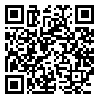BibTeX | RIS | EndNote | Medlars | ProCite | Reference Manager | RefWorks
Send citation to:
URL: http://jdm.tums.ac.ir/article-1-184-en.html
Background and Aim: Pit and fissure sealant therapy, is one of the most effective methods, in prevention of occlusal caries. Saliva contamination before curing the resin can increase the risk of failure in this method. The purpose of this study was to evaluate the effect of saliva contamination prior to curing on microleakage of pit and fissure sealants.
Materials and Methods: In this experimental in vitro study 21 sound human pre molars were selected and two standardized V-Shaped fissures were prepared on both buccal and lingual surfaces, then they were randomly divided into two equal groups. In the control group, the sealant was cured without any saliva contamination and in the case group, the sealed teeth were immersed in artificial saliva for ten seconds before curing. After thermocycling the samples were immersed in 2% fouchsin solution for 24 hours and then sectioned longitudinally in bucco - lingual direction. The specimens were then fixed and assessed under stereomicroscope to determine microleakage and dye penetration using paired student t. test. P<0.05 was considered as the level of significance.
Results: Analysis of data showed no significant differences in microleakage, between the two groups (p=0.178).
Conclusion: According to the results of this study saliva contamination of uncured sealant had no influence on microleakage.
Received: 2007/07/1 | Accepted: 2008/06/5 | Published: 2013/08/20
| Rights and Permissions | |
 |
This work is licensed under a Creative Commons Attribution-NonCommercial 4.0 International License. |




